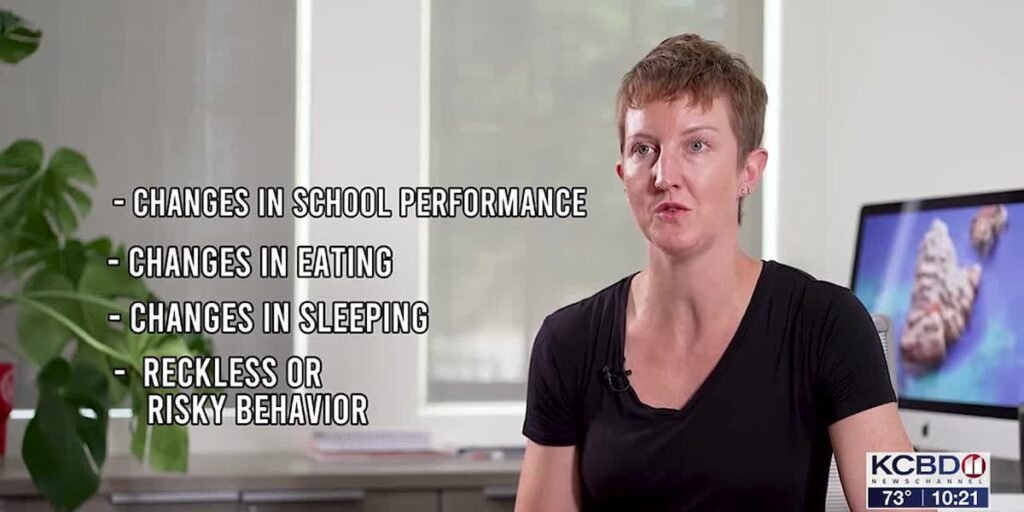LUBBOCK, Texas (KCBD) – We look at our teens and think they have their whole lives ahead of them. So why? According to the National Institutes of Health, suicide is the second leading cause of death for teens and young adults in this country.
It’s hard to know why, but health officials agree that all parents, grandparents and teachers need to be aware of the dangers of suicide today, even in young children.
Dr. Natalie Scanlon is a clinical psychologist in the Texas Tech University Department of Psychiatry.
She says it’s important to pay attention to changes in behavior that may indicate your child is struggling, even though they change as they grow and develop.
“If kids start talking about it, drawing pictures, writing notes and other things, those are some of the more obvious signs that we should start worrying and asking questions. ” If you notice changes in your academic performance, eating, or sleeping. If you notice reckless or dangerous behavior, especially drug use, that could be a warning sign. And certainly, if there are losses, if there are big changes, losses, partings. ”
She said some children talk about feeling hopeless about their future or worry that they are a burden to others. Another red flag, she says, is when you notice your child giving away personal items.
So what can parents do? Dr. Scanlon says the most important thing to do if you suspect someone is having suicidal thoughts is to ask about it.
“A lot of people are hesitant about it because they don’t know what to say, or they think that if they mention suicide, they’re planting a seed in someone who’s already suffering.” said Dr. Scanlon. “And in fact, we know from a lot of data that there’s no harm in asking someone about suicide. To open honest conversations about suicide or just about what they’re struggling with in general. It will open the door to
The next step, she says, is to make potentially harmful items less accessible in the home.
In addition to firearms, you should also put away drugs, alcohol, other substances, and even sharp objects, she says.
Remember, we have an important resource available here in West Texas: Campus Alliance for Telehealth Resources.
It’s a program in which states partner with school districts to identify students with mental health concerns and help them get the outpatient treatment they need.
So if you’re concerned about your child’s anxiety or depression, talk to your teacher. It is the first step in connecting your child with the right person who can help.
Parents and young people should know that they can reach the Suicide and Crisis Lifeline 24 hours a day, seven days a week by dialing 988.
Trained counselors are always available to assist you in English and Spanish.
Copyright 2024 KCBD. Unauthorized reproduction is prohibited.

